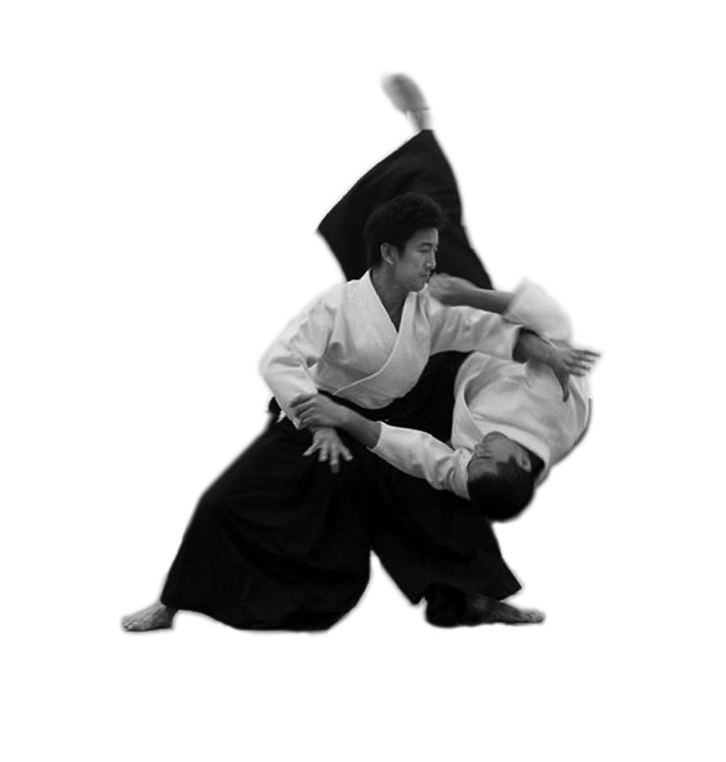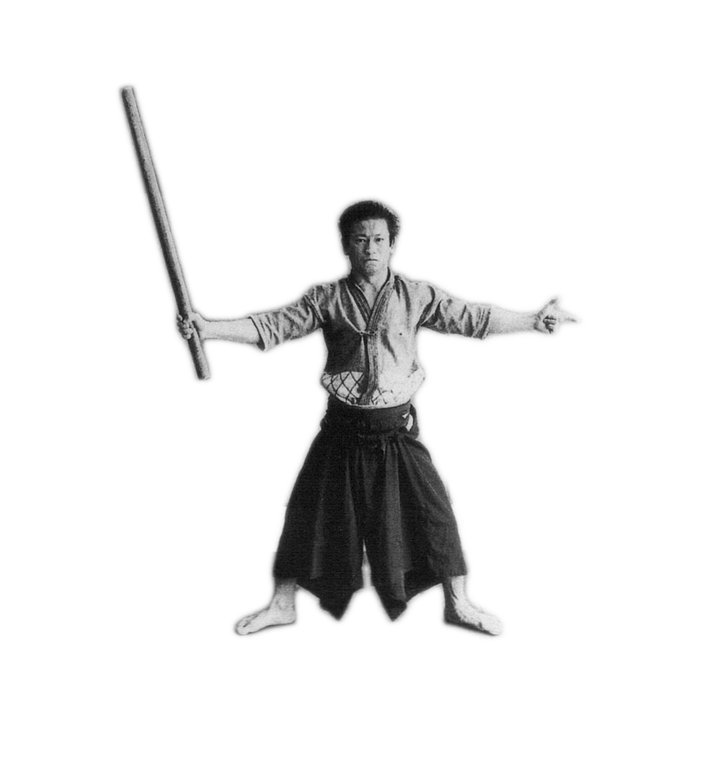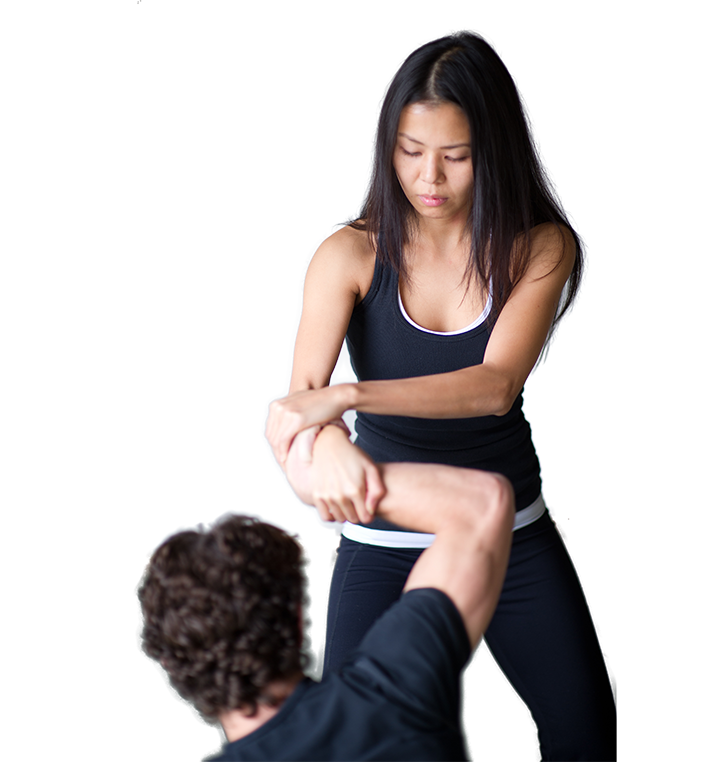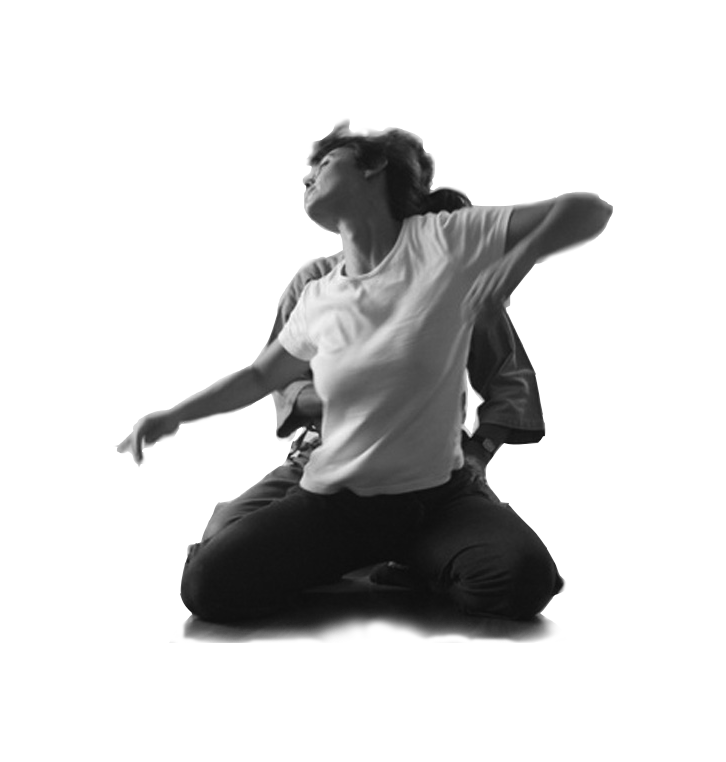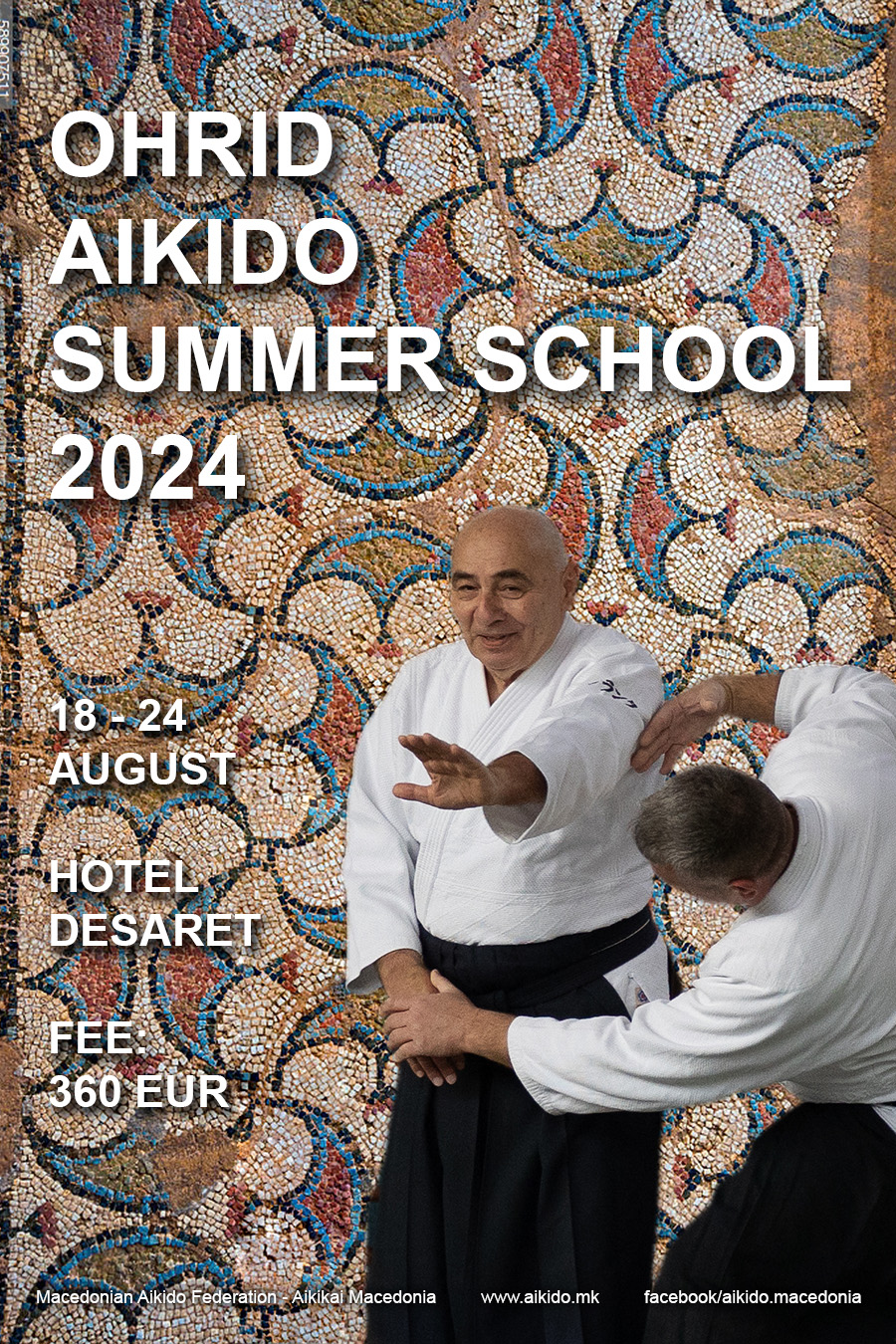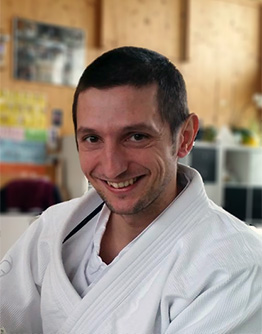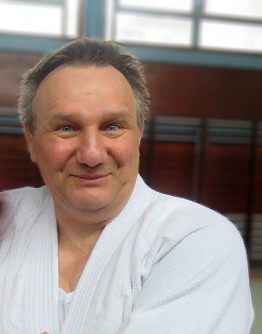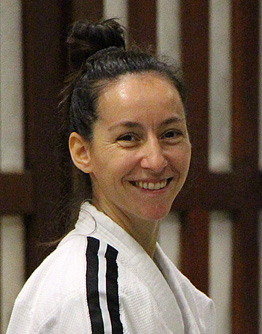Latest News
We are active all the time.
More on the mat than on the net! :).
Spring aikido seminar in our dojo - April 2023
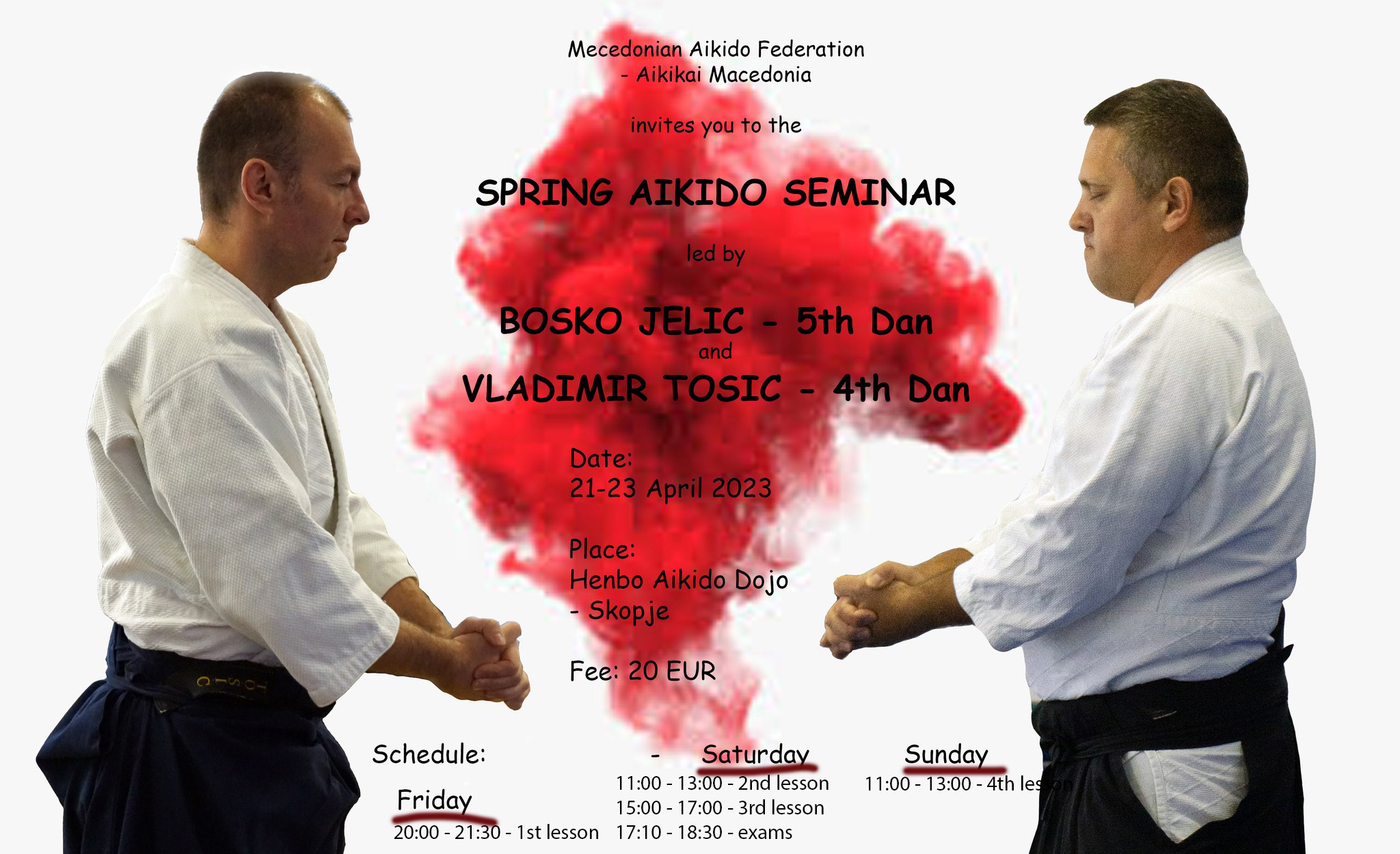
You are most welcome to join our Spring seminar!
Fill the form online to apply:
Attended seminar held by Makoto Ito shihan
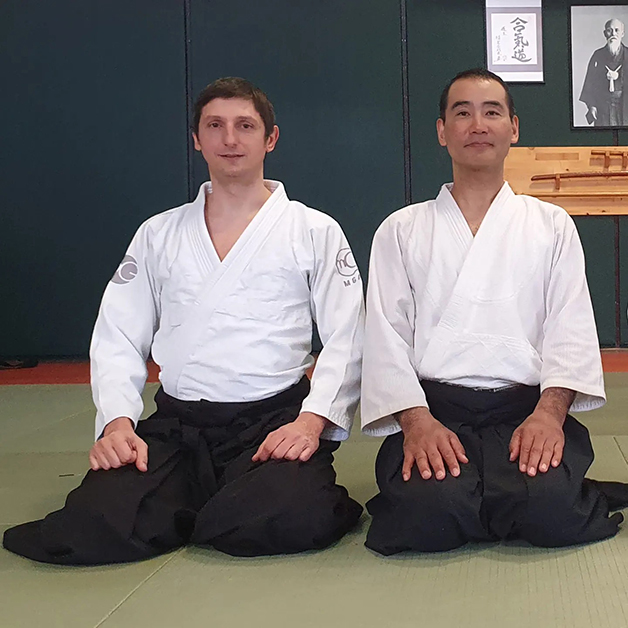
Last weekend our teacher had attended the international aikido seminar in Sofia held by Makoto Ito shihan. This was the first seminar out of
...We strive for perfection
We Strive for Perfection
Japan's warrior class - the samurai, lived their life in accordance with the "way of the warrior" called - Bushido. It is said, Bushido is the soul of Japan. He interprets the samurai code of conduct, how chivalrous men should act in their personal and professional lives. We are working on our development using this guide through the eight virtues of Bushido:

Rectitude

Honesty

Courage

Honor

Benevolence

Loyalty

Respect

Self-Control
What is Aikido?
Aikido is budo. It is a martial art created in Japan. Translated, it means “The Way of harmonizing [with the] energy” (AI - harmony, KI - energy, and DO - the way). The founder Morihei Ueshiba officialy established this martial art in 1941-2 with this name, as a result of gained knowledge from previously mastered martial arts.
Regarding the technical part, the biggest influence in creating aikido had the martial art “Daito ryu aiki jujutsu”. Morihei Ueshiba learnt Daito Ryu from Takeda Sokaku, who was the first to teach this medieval samurai martial art outside the Takeda clan.
Inner Peace and strength
Practicing aikido improves some of the basic tools that we need in every day life: Discipline, Focus and Patience. With these "weapons" in our possesion we can fight all the battels that we are confronted with.
For a martial artist, this means to have restraint and control. In other words, not being hot headed. Not taking out your frustration or anger out on your teacher or the person you are training with.
You have to be in control of your emotions. Don’t let your emotions control you. It also means making a commitment to train on a regular basis, making your health and wellness a priority and to stop making excuses for why you can’t do those things.
If you want to master anything, you must be patient. This is equally as hard as the other virtues and sometimes the hardest for many students.
We live in a society that teaches us to expect instant gratification and sadly most have come to the same expectation with their training. Your training will take as long as it takes to get something and even once you get a concept, you will still need to perfect it, which really never stops. I know that isn’t the answer most want to hear, but it’s true. You must be patient with yourself, your mind, body and even your teacher at times.
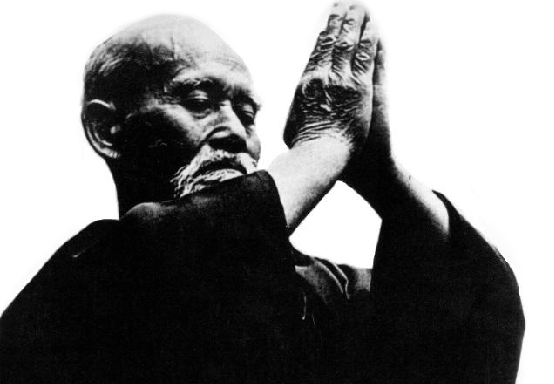
Henbo aikido dojo is a member of the Macedonian aikido federation - Aikikai Macedonia.
Founded in 2005.
We practice aikido according to the standards of the Aikikai Hombu in Japan. We use the didactical system made by Masatomi Ikeda sensei. This system is characterized by an exceptional teaching and learning methodology, which provides understanding of the complexity of aikido and its core principle of no-resistance. The examination program for degrees is also tailored by Masatomi Ikeda sensei. His teachings are transfered to us by our mentor/supervisor Michele Quaranta shihan.
The school main teacher is Damjan Cingarski (4th Dan Aikikai).
At Henbo Aikido dojo, as an inseparable part of aikido, aikiken (techniques with a wooden sword) and aikijo (techniques with a wooden stick) are being studied. Since we follow the Ikeda sensei's system in its fullness, we also study the Hojo kata (a kenjutsu martial art - kata with a special thick wooden sword) and the Genkikai system of exercises for physical health.
The members of Henbo aikido dojo are practicing at regular bases, they visit international seminars in our country and abroad and are examined by our mentor Quaranta sensei for master degrees.
Our dojo is in the sporthall of the elementary school "Pestaloci".
Tel No. +389 76 697 000.
Visit our Youtube video page
Every now and then we publish a video of our work.
Schedule
| Monday | Wednesday | Friday | |
| children | 19:00 | 19:00 | |
| adults | 20:00 | 20:00 | 20:00 |
Our Members Feedback
Each one has its own special reason for starting with aikido - self-defense, health, fitness, etc. But very often through the practice new reasons are revealed to us, which change and enrich the way we see the world.
Where are we?
The aikido lessos are held in the sport hall of the elementary School "J. H. Pestaloci“ in the proximity of the TC Bunjakovec (shopping centre). Address: Apostol Guslarot No. 3 , Skopje tel: 076 697 000.




